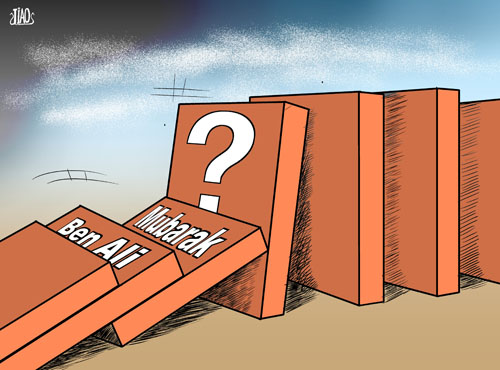Twittering the Internet Intifada
The phrase "technological revolution" has just taken on an all-new meaning.
 |
|
Who's next? [By Jiao Haiyang/China.org.cn] |
It's no longer about applying nuts and bolts to industry – or even adding new chips to computers; it's now about using information technology to promote protests, spread revolution – and wage war.
Governments and Intelligence services the world over have been slowly waking up to the power of the Internet.
Today, however, after the fall of Hosni Mubarak from the Egyptian Presidency, they are gung ho about the power of the social networks. [Did facebook bring down Mubarak?]
The current Middle Eastern street protests have a distinct technological edge. The organizers in Egypt are New Media savvy.
People are being informed and mobilized by text and e-mail, while satellite TV and mobile phones spread the words and images of each protest.
But the protests are largely coordinated through Facebook, Twitter and other popular social networks.
The sites were absolutely instrumental in engineering the fall of at least two governments to date – and they continue to be used to push the political processes in desirable directions across borders.
With 90 percent of Egypt's unemployed under 30, the speed and effect of the information flow helped increase and inflame passions among the Internet generation, who emerged in the forefront of the protests.
It's the same in other countries, in a region where between 50-65 percent of the population are young.
 0
0 






